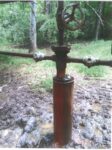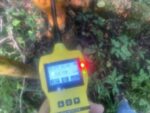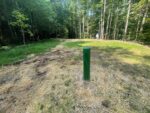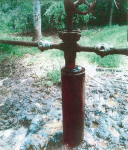- Like
- Digg
- Del
- Tumblr
- VKontakte
- Buffer
- Love This
- Odnoklassniki
- Meneame
- Blogger
- Amazon
- Yahoo Mail
- Gmail
- AOL
- Newsvine
- HackerNews
- Evernote
- MySpace
- Mail.ru
- Viadeo
- Line
- Comments
- Yummly
- SMS
- Viber
- Telegram
- Subscribe
- Skype
- Facebook Messenger
- Kakao
- LiveJournal
- Yammer
- Edgar
- Fintel
- Mix
- Instapaper
- Copy Link
 |
|
|||||||||
|
On Thursday, the House of Delegates passed a the “co-tenancy” bill (HB 4268), with 60 votes for, and 40 votes against. This is one of a series of oil and gas development bills that have been introduced in recent years in various forms and degrees, and which is sometimes referred to as “forced pooling.” HB 4268 only address what the industry calls “co-tenancy,” which we are calling the “cousins” bill because it deals with heirship and other mineral tracts with multiple (sometimes hundreds) owners who each own an undivided interest in the mineral tract. The bill would allow a mineral tract to be developed if 75% of the owners agree. Delegate Barbara Fleischauer (D-Monongalia) tried to amend the bill to increase the approval threshold to 90 percent. That amendment was voted down. As the bill came to the floor from the House Judiciary Committee it contained important protections for surface owners, requiring their consent for any surface disturbance whenever the co-tenancy law is used to develop the mineral tract beneath a surface owners’ land or into any neighboring mineral tract, regardless of whether the surface owner owns an interest in the mineral tract being developed. This is significant. The bill also contained protections for the non-consenting, and missing and unknown mineral owners that were not included in the introduced bill. These include royalties paid being based on no deductions, and no storage/injection/arbitration/or venue clauses. On the floor, two other amendments were adopted that provide additional protections for these mineral owners. Delegate Rolland Jennings (R-Preston) offered an amendment that would limit lease terms to the target formation and allow non-consenting or unlocatable co-owners retain their rights to negotiate if future drilling was planned to a different shale formation. This amendment was adopted 90-5. An amendment offered by Delegate Michael Folk (R-Berkeley), which made the proposed statute applicable only to tracts owned by more than seven people was also adopted overwhelmingly (90-6). A third amendment adopted by the House would take 50 percent of the money from the Unlocatable Interest Owners Fund, established with unclaimed proceeds from owed to missing and unknown mineral owners, and puts it toward funding the Public Employee Insurance Agency. As originally envisioned, if missing and unknown mineral owners do not show up after seven years, the millions of dollars that would go to them during that time would be used to plug some of the 4,000 orphaned wells out there that need plugged and for which there is no longer a responsible operator. These unplugged wells pose a threat to the environment, and can serve as conduits for water contamination for those who rely on private water wells for drinking and other uses. While we whole-heartedly support our teachers and state employees and believe the amendment was well intentioned, the the “Oil and Gas Reclamation Fund” is in desperate need of funding. At most, there is enough money in the fund to plug 10 wells per year, out of the thousands of wells that that have been orphaned over the last century by oil and gas drillers who have gone out of business without plugging them, a problem we expect to grow worse as more conventional drilling companies to go out of business in the wake of the Marcellus Shale drilling tsunami. HB 4268 is now in the Senate where it has been assigned to the Energy, Industry, and Mining Committee, and the Judiciary Committee. In other news, our “land reunion” bill, SB 148, which would begin to reverse the trend of separate ownership by giving surface owners a first chance to own any interest in the minerals under their land that are sold for non-payment of property taxes, was approved by the Senate Natural Resources Committee today. It also needs approval of the the Senate Finance Committee before it can be voted on by the full Senate later. The bill passed the Senate 33-1 last year so we’re hopeful it will get out of committee and be passed again this year in time to be considered by the House. Unfortunately, time is running out on other bills that are a priority for WV SORO. These include HB 2990, which would require continuous monitoring of air, noise, dust, and particulates as recommended by the studies mandated by the 2011 Horizontal Well Act; and HB 3011, which would allow property owners to share financially in the gains from the various interstate pipeline projects, if they are approved and built. (More information about these bills is available here.) Please contact members of the House Energy Committee and your delegate(s) and urge them to prioritize other legislation before them that will help those most affect by drilling and natural gas infrastructure. Thanks for your support and all that you do. We’ll continue to keep you posted. |
||||||||||









